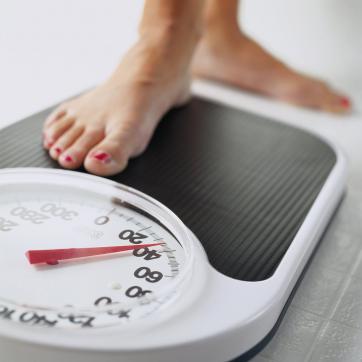 So you have been dieting and exercising regularly and have noticed some weight loss, but all of a sudden you stop seeing any changes and your weight stays the same. Does this sound familiar? Don't get discouraged, it's normal for weight loss to slow down and even stop. This phenomenon is called the "weight-loss plateau" and it's more common than you think. Even the best planned weight loss program can become stalled.
So you have been dieting and exercising regularly and have noticed some weight loss, but all of a sudden you stop seeing any changes and your weight stays the same. Does this sound familiar? Don't get discouraged, it's normal for weight loss to slow down and even stop. This phenomenon is called the "weight-loss plateau" and it's more common than you think. Even the best planned weight loss program can become stalled.
According to the Mayo Clinic, here's why this happens: a rapid weight loss is common during the first few weeks of a well planned diet. When calories are reduced the body gets needed energy by releasing its stores of glycogen, a type of carbohydrate stored in the liver and muscles. Glycogen holds a lot of water so when it is used up at the beginning of a diet, it also releases the water--about 4 grams per gram of glycogen, resulting in a sudden weight loss that is mostly water.
Once your diet progresses and you start burning lean muscle tissue, your metabolism slows. Metabolism is the process of converting food into energy. When you lose weight you lose fat and lean muscle and this weigh-loss changes once your metabolism slows. At this point, you need to increase your exercise or decrease your food intake if you want to lose more weight. If you continue the same diet/exercise regimen you started with, you will maintain your weight but probably not continue to drop many pounds.
To get past this weight loss plateau, you need to
- Review your eating/exercise habits and be sure you haven't "cheated" along the way
- Cut more calories, as long as you're staying within healthy ranges
- Increase your workout either in time or intensity
- Try to increase movement during the day--for instance, take stairs instead of the elevator, or run your errands on foot.
- Applaud your success and make sure your goals are reasonable--just don't fall back.
